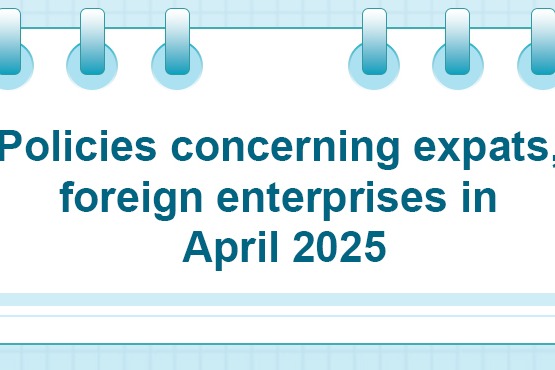Envoy: China doesn't want or fear trade war


China doesn't want or fear a trade war, and talks should be conducted in an equal, respectful and reciprocal manner, Beijing's top envoy in Washington said, as the US-China Business Council cautioned that hefty duties, if they take hold, would significantly reduce US exports.
Speaking at an embassy open house event on Saturday, Ambassador Xie Feng said tariff hikes benefit no one, but disrupt business, raise costs, rattle financial markets and slow global growth.
In his first 100 days in office since Jan 20, US President Donald Trump has announced sweeping tariffs, starting with a 10 percent blanket duty on all foreign-made imports.
Dozens of countries received a 90-day pause until July, but tariffs were raised to 145 percent on products from China, which has retaliated by imposing 125 percent levies on US goods.
"China does not want a trade war but is not intimidated by it. We are defending not only our own legitimate rights and interests but also the order of international trade," Xie said.
"If the US wants to talk, it should act in the spirit of equality, respect and reciprocity," he added.
The envoy noted that trade is not a zero-sum game, and building barriers only blocks the flow of shared growth.
Saturday's embassy event, part of this year's Around the World Embassy Tour, featured Gansu province of Northwest China, once a front line in China's fight against poverty.
Gansu, by lifting more than 5.5 million people out of poverty and covering over 99 percent of its land with a 4G network, tells a story of resilience and self-reliance, according to Xie.
"Wealth is created with perseverance. The same thing holds true to entire China: Hardship only makes us stronger. We don't give up. We keep forging ahead," he said.
To illustrate how the US has long benefited from global trade, Xie said that in 2022 alone, the revenue of the US-owned enterprises in China significantly exceeded those of Chinese-owned enterprises in the US, by more than $400 billion.
"The China-US economic relationship is overall balanced and mutually beneficial," he said.
China remained the United States' third-largest goods export market in 2024 and sixth-largest services export market in 2023. Trade with China in areas like agriculture, education, travel, aerospace and semiconductors supports 862,467 American jobs, according to the 2025 Export Report from the US-China Business Council.
Total goods exports to China, which hit a high in 2022 at $151.5 billion, contracted slightly in 2024, but surged by 23.4 percent from a decade ago, according to the USCBC report.
The data does not reflect US and Chinese tariff increases enacted so far this year, which are expected to significantly reduce US exports if they remain in place, the trade body said in a release.
"If these tariffs remain in place, trade between the two countries will fall precipitously, sacrificing billions of dollars of exports and hundreds of thousands of American jobs, potentially destabilizing the US economy and significantly weakening America's global competitiveness," said Sean Stein, USCBC president.
The USCBC called for Washington and Beijing to "come to the negotiating table and take immediate steps to remove or scale back these tariffs".
The US administration's trade policies are already impacting household budgets and causing frustration among Americans who have noticed higher prices for their goods, according to US media reports.
The US-imposed tariffs and the threatened and imposed retaliatory tariffs are expected to reduce US GDP by 1 percent, and they amount to an average tax increase of nearly $1,300 per US household in 2025, according to a study by the nonpartisan Tax Foundation updated on April 18.
For California, the largest state economy in the US, the direct and indirect economic costs of tariffs is "in the billions and billions of dollars", according to Governor Gavin Newsom.
"It has an outsized impact on tourism, on trade, small businesses, large businesses ... and the reputation (damage) is incalculable," Newsom said in an online interview with Nikkei Asia on Friday.
California exported goods valued at nearly $15 billion to China last year, a drop of about 9.5 percent, but its service exports, including tourism and education, grew by 6.3 percent to $8.8 billion in 2023, according to the USCBC export report.
The governor, who visited Beijing last year, said the state will remain open to trade with China as the current US administration's tariff policy has threatened the state economy.
He said the state is a "stable partner" and has "extended an open hand" to China and other trading partners.
Global trade is not a zero-sum game, and Newsom said he recognizes "our interdependence".




































